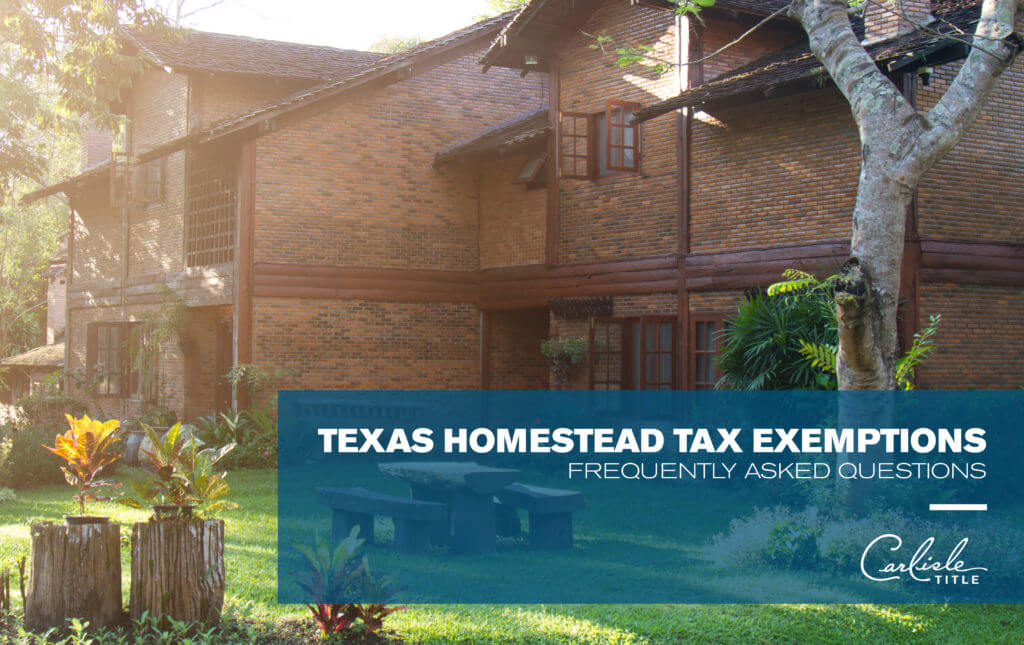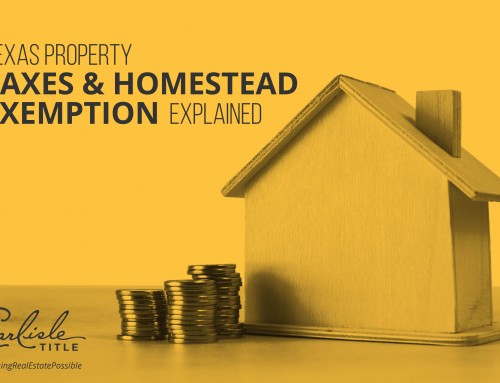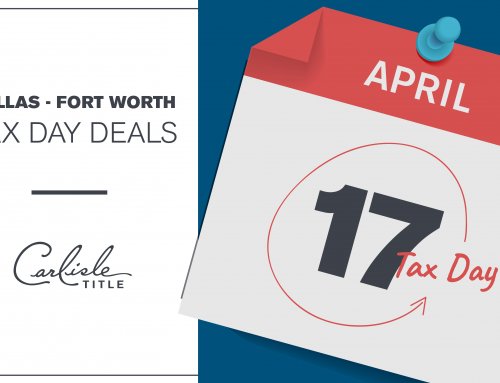 What is a Homestead Tax Exemption?
What is a Homestead Tax Exemption?
One of the easiest ways for homeowners to lower their property tax bill is to file for a Homestead Tax Exemption. This ultimately lowers your taxes by removing a portion of your home’s value from taxation. For instance, if your home is appraised at $200,000, and you qualify for a $25,000 exemption, you will pay taxes on $175,000 instead of the $200,000.
What are the qualifications to receive the Homestead Tax Exemption?
To qualify, the home must be owned by an individual and/or persons (not a corporation or business) and be the primary residence of the owner(s) on January 1, of the tax year in which you are requesting exemption. For instance if you purchased a home in 2017, and occupied it in the same year, you would apply for the Homestead Tax Exemption between January 1, 2018 and April 30, 2018. Also note, a homestead is not limited to a detached single family home, it can be a separate structure, condominium or a manufactured home located on owned or leased land.
What Homestead Exemptions are available?
- School taxes: All residence homestead owners are allowed a $25,000 homestead exemption from their home’s value for school taxes.
- County taxes: If a county collects a special tax for farm-to-market roads or flood control, a residence homestead is allowed to receive an exemption for this tax. If the county grants an optional exemption for homeowners age 65 or older or disabled, the owners will receive only the local-option exemption.
- Age 65 or older and disabled exemptions: Individuals age 65 or older or disabled residence homestead owners qualify for a homestead exemption for school taxes, in addition to the $25,000 exemption for all homeowners. If the owner qualifies for both exemptions for age 65 or older homeowners and the exemption for disabled homeowners, the owner must choose one or the other for school taxes. The owner cannot receive both exemptions.
- Optional percentage exemptions: Any taxing unit, including a city, county, school, or special district, may offer an exemption of a percentage of a home’s value. But, no matter what the percentage is, the amount of an optional exemption cannot be less than $5,000. Each taxing unit decides if it will offer the exemption and at what percentage. This percentage exemption is added to any other home exemption for which an owner qualifies. The taxing unit must decide before July 1 of the tax year to offer this exemption.
- Optional age 65 or older or disabled exemptions: Any taxing unit may offer an additional exemption amount for taxpayers age 65 or older and/or disabled.
How do I apply?
Applications must be submitted to your local County Appraisal District (CAD) between January 1, and April 30, and you can find a list of their websites here, or find links to the DFW counties below. If there is not a form listed on a the CAD website, a general application can be downloaded here.
Do I have to apply each year?
Once you have received a homestead exemption you need not reapply unless you are contacted by your appraisal district, you move or circumstances have changed that qualify you for a new exemption (for example turning 65 years old).
IMPORTANT: If you receive mail or any type of communication requesting money to file for a Homestead Tax Exemption, know that applying is as simple as filling out the necessary document provided from the County Appraisal District. THERE IS NO FEE ASSOCIATED WITH APPLYING FOR HOMESTEAD. If you have any questions or concerns please contact your local Appraisal District.
Collin County CAD | Dallas County CAD | Denton County CAD | Johnson County CAD | Kaufman County CAD
Parker County CAD | Rockwall County CAD | Tarrant County CAD | Wise CAD





